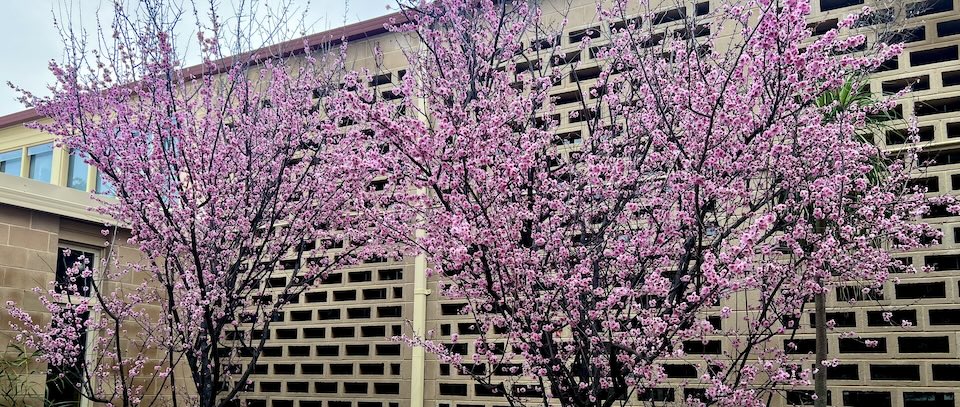This sermon was preached on the 25th of August 2024, the Fourteenth Sunday after Pentecost, at St Barnabas Church in the Anglican Parish of Kalamunda-Lesmurdie
Texts:
On Thursday night, I was stood out in the courtyard just there, and a squall came in. The trees waved about dramatically in the wind. I found myself wondering if their branches would snap.
I was, of course, not wearing my jacket. But I stood there amazed. And then I shouted aloud, into the air: “Oh… come on!”
And yet… that moment of drama set me thinking about the ancient people who, inspired by God, wrote the Holy Scriptures.
Those people were very different from us, and yet, oddly similar. Their basic human wants, their basic humans needs, are our needs and wants. If we are comfortable, most of us want the next day to be basically like the last. And that’s an elusive goal, a goal that can never be sustained.
Wind, water… chaos, these things would come with the seasons and enter into the lives of the ancients, enter into their communities, overwhelming their control, their society, and upending everything.
This is not Father John’s funeral, and this is not a funeral sermon. And yet, sudden illness has taken John from his family, and from us. And so chaos has entered into our community too, and this week we are gathered together in grief.
Our needs in this time are different, and diverse. Some of us will want to get busy. Some of us will want to slow things down, and recede for a time. Some of us will look for fellowship. And, of course, we all pray.
We find ourselves, we find our community in a season we had not anticipated. We don’t have control over that. And so we collect ourselves, we take a breath, and we come together as have today. Earlier, when Bishop Kate prayed the Collect, we did that: we embodied that, enfolded together, collected together before our God, Holy and Triune.
“I am the bread of life.”
For weeks now, we have walked with the sixth chapter of John’s Gospel. Our readings have overlapped week to week. Verses have been repeated time and again.
And that’s a very good thing. Jesus is the bread of life.
We can’t wall ourselves off from the chaos of the world. We don’t have that control. And yet, we are not alone.
God entered into the world in the person of Jesus of Nazareth, to be with us in this. To walk with us. To care, to teach, to experience all that it is to be human. Jesus was not some abstract manifestation of God. Jesus was fully human, and fully God, born of the Blessed Mary, born of a woman.
Jesus came among us, and so the Second Person of the Trinity experienced all that it is to be human: all that it is to be limited, to be immersed in and subject to the chaos of the world, the chaos creation.
Jesus wept at the tomb of Lazarus, because his friend had died. Jesus knew grief.
But Jesus also experienced with human eyes, with human senses, beauty, and wonder, and love. The goodness of creation, which is so evident to us, even in this season.
The ornamental cherries here burst into flower this week. There’s something profound in that. And seeing them, the great Song of the Church, the Te Deum, leaps into my mind:
We praise you O God:
we acclaim you as Lord.
All creation worships you,
the Father everlasting.
The flowers in that little stand of trees will feed birds and insects, they will nurture and attend to the needs of many creatures we will never even notice. And so, creation itself worships. Creation worships by proclaiming the hospitality of God.
And we too proclaim the hospitality of God. The art in this church, the tree that this community constructed, led, guided, and mentored by Father John, and by Julie, proclaims the hospitable Kingdom of God.
Jesus is the Bread of Life.
In a few minutes we will come together to share the peace: the peace of Christ. That will be a time of reconciliation and of hope, a time when we look for Christ in one another’s eyes.
“Those who eat my flesh and drink my blood abide in me and I in them.”
We are that people. We are the Church, the Body of Christ. We abide in Christ, and Christ abides in us. And if we remember that, if we turn to God in faith, if we offer our pain, our grief, our distress, even our anger, to God, then we will in time find peace.
This is not a season to close ourselves off, to put on armour, to pull back from one another. Instead we recognise our utter dependency upon God. And recognising that God is the source, the source of light, life, hope, and love, we are transformed.
I’ve talked in recent weeks about the light of Christ: the light stoked and kindled through the holy sacrament of Baptism, the light that we bear to each other, and to the world.
But we can also be bread for one another. We can sustain one another through this season, collected together in prayer. To care for one another in this season is in itself a profound act of worship – a profound proclamation, once more, of God’s hospitality and care.
Our utter dependency upon God is a difficult teaching. In today’s Gospel, many turn away from Jesus, unable to accept this stark truth. And yet Saint Peter spoke for those who remained, and he speaks for us today:
“Lord, to whom can we go? You have the words of eternal life. We have come to believe and know that you are the Holy One of God.”
